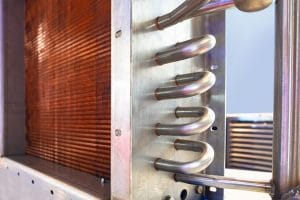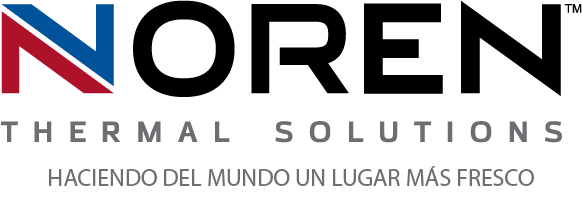 Before companies in any industry invest in new, innovative forms of technologies, those solutions have to be proven effective. For heat exchangers, that proof didn’t take long to become obvious. As companies renovate their electrical cooling systems, changing out older chilling solutions for newer, more streamlined heat exchangers, the advantages are almost immediate. These advantages include more efficient and cost-effective thermal management, starting with electrical cooling processes and often extending to several other thermal management concerns. Today, heat exchangers help companies reduce costs and boost efficiency in several vital areas of operations, and the advantages continue to grow as more companies adopt heat transfer solutions.
Before companies in any industry invest in new, innovative forms of technologies, those solutions have to be proven effective. For heat exchangers, that proof didn’t take long to become obvious. As companies renovate their electrical cooling systems, changing out older chilling solutions for newer, more streamlined heat exchangers, the advantages are almost immediate. These advantages include more efficient and cost-effective thermal management, starting with electrical cooling processes and often extending to several other thermal management concerns. Today, heat exchangers help companies reduce costs and boost efficiency in several vital areas of operations, and the advantages continue to grow as more companies adopt heat transfer solutions.
The science of transferring waste heat
Heat exchangers keep electrical enclosures cool by transferring the waste heat electrical components generate. Modern heat exchangers can accomplish this in several natural, eco-friendly ways, such as phase-change cooling. For example, the fluid within a heat exchanger (usually water) can absorb waste heat without allowing for any rise in temperature within the enclosure. Once it reaches its latent heat of vaporization – the point at which it evaporates – the fluid becomes much less dense and can easily transfer the heat to a cooler area of the heat exchanger. Once it releases the heat, the fluid condenses back to liquid and can continue the heat transfer cycle indefinitely.
Heat transfer compared to HVAC
Though the principles of transferring waste heat are simpler in concept than HVAC and other cooling processes, heat exchangers are effective at cooling even high-performance applications with optimal efficiency. In addition to being effective, transferring heat is also more efficient, both in overall cost and the need for routine upkeep. Because heat exchangers use natural methods of transferring heat instead of complex equipment to chill air, they don’t require as much energy to keep running. In addition, heat exchangers are much more manageable and easy to maintain, requiring significantly less frequent repairs and fewer interruptions to a company’s productivity.
How companies benefit even further
The ability to streamline their electrical cooling systems with advanced heat transfer methods has given companies a significant competitive advantage over the years. However, the benefits of heat exchanger technology often go beyond making it easier and more cost-effective to cool electrical enclosures. For instance, companies that rely on heat removal processes, such as those in the molding industry, can take advantage of specialized heat exchangers (known as thermal pins) that are designed specifically for plastic mold cooling.
For more information about the advantages of transferring heat over traditional cooling methods, call Noren Thermal Solutions in Taylor, TX, at 866-936-6736.







